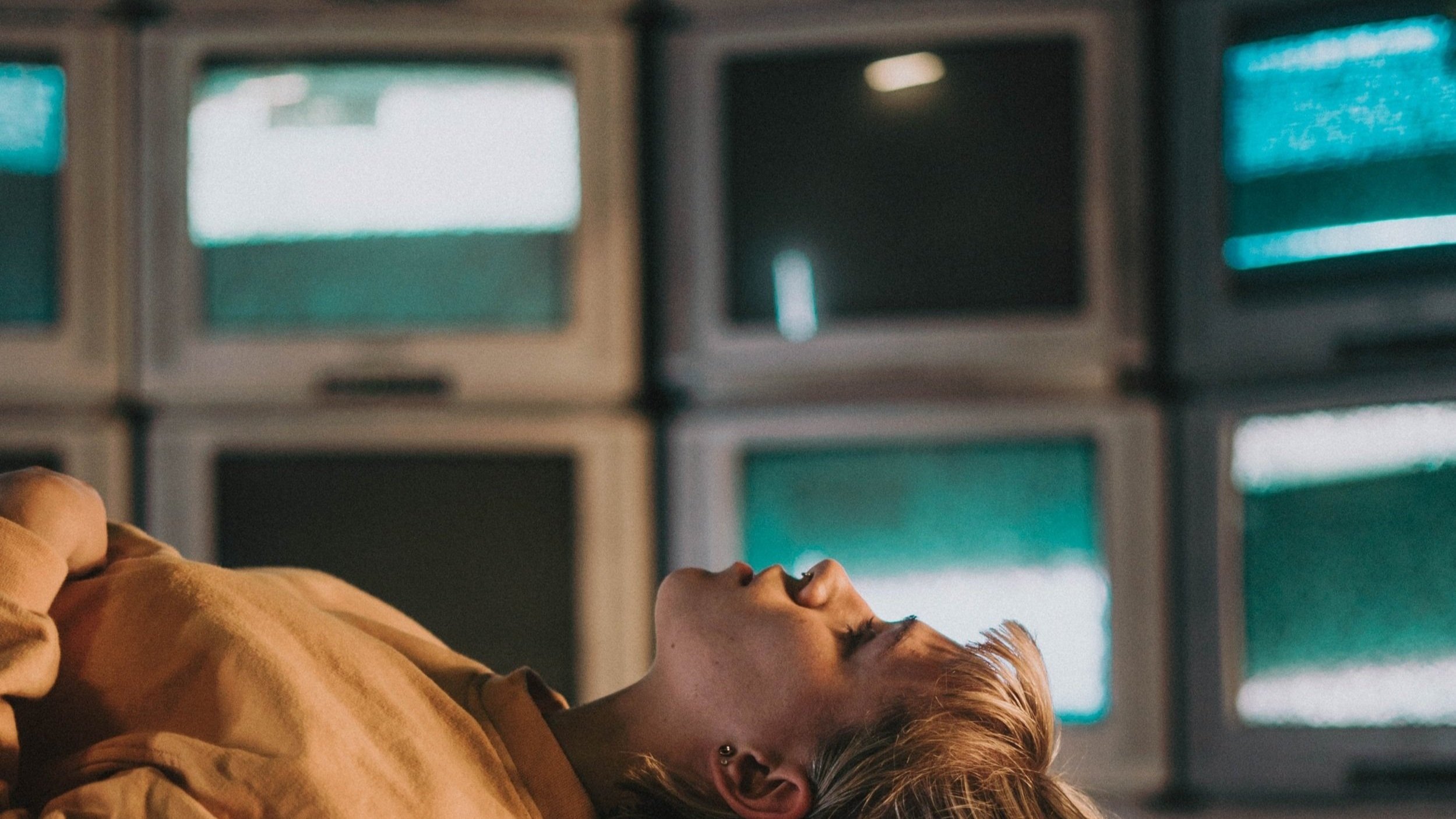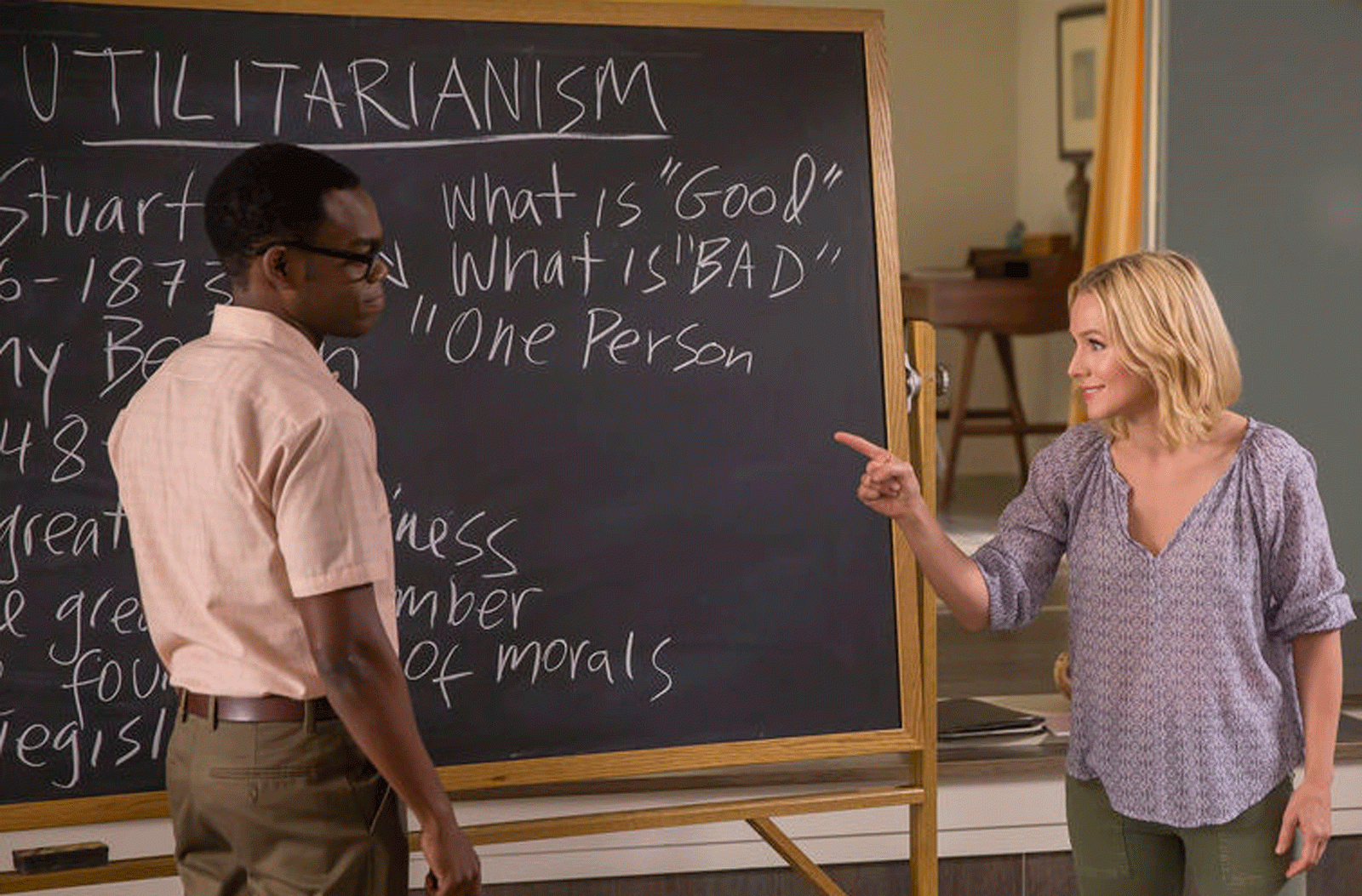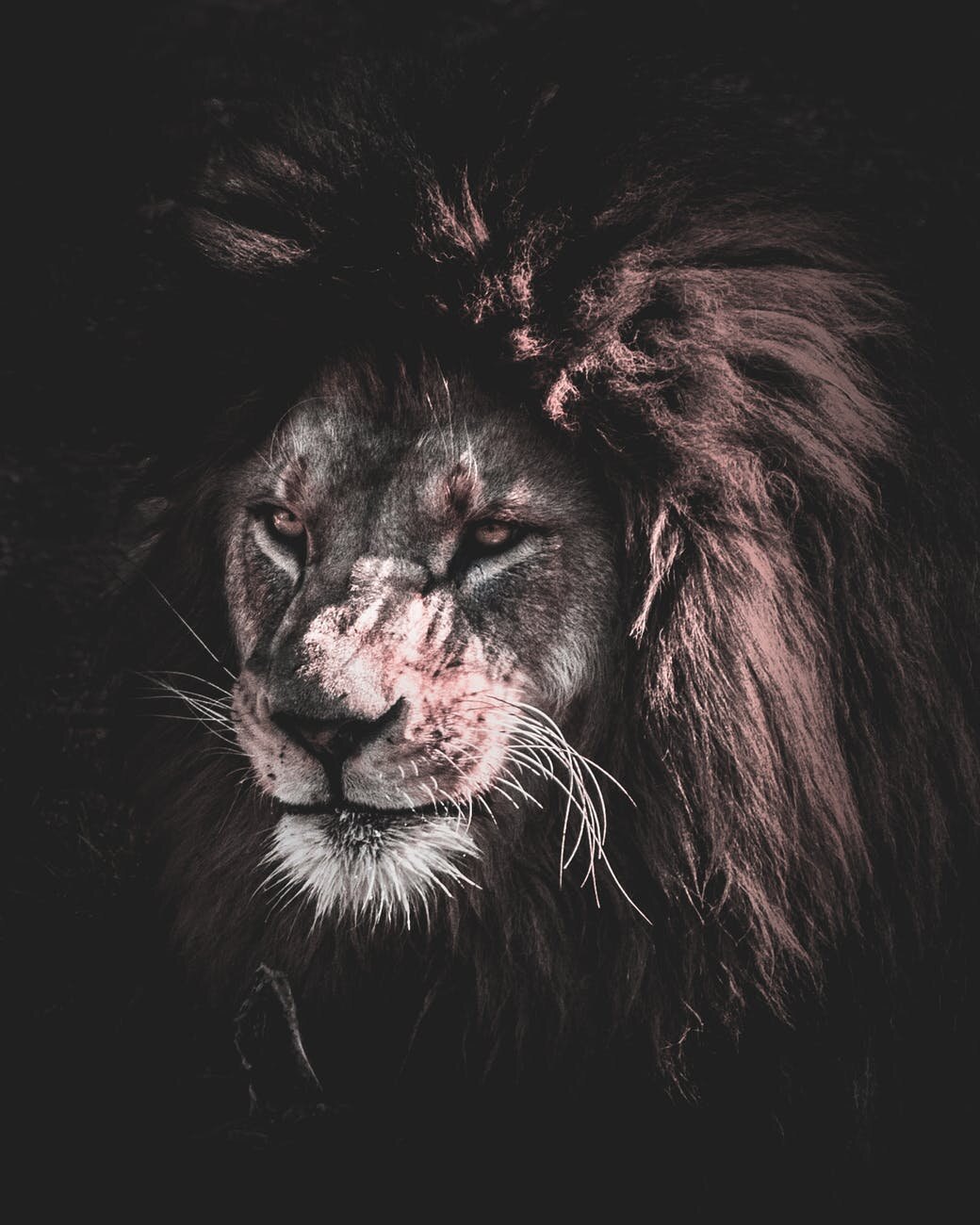Books & Movies
Analyzing books, movies, and similar forms of media.
October 16, 2023 | Hannah Turner BK ‘23+1
The rise of social media has broken the monopoly of cable television. With just a cheap smartphone and a stable Internet connection, we create our own show. We put ourselves in a dome where we are the main character and our life is consumed by people across the world. We strive to be like Truman, forgetting that he was trapped.
December 31, 2021 | By Sharla Moody BK ‘22
The science fiction of the first half of the twentieth century appears much more optimistic than what we see today. This optimistic sci-fi can perhaps be best exemplified by Hanna-Barbera’s 1962-1963 cartoon The Jetsons, which imagines what life might be like in the year 2062. The Jetsons drive a flying car, live in an ultra modern city built in Earth’s atmosphere, and exist as a happy nuclear family.
March 2, 2021 | Raquel Sequeira TD ‘21 +.5
The words had been running through my head since before Lent—since before I moved back to New Haven to finally start my senior year. After a gap semester spent living at home, I prayed for guidance into spring and tried to be genuinely open to whatever God might ask of me. Would I be called to continue serving my family at home without a career-building job?
Dec 20, 2020 | By Sharla Moody BK ‘22
Note: this review contains spoilers for It’s a Wonderful Life
Every December my family watches the Christmas classic It’s a Wonderful Life. [1] One year, we went to the single-screen retro cinema down the street from our house called The Colony Club, which has unfortunately permanently closed its doors.
Dec 5, 2020 | By Bella Gamboa JE ‘22
I did not expect a film watched for class to be a spiritually rich experience, but Leon Morin, Prêtre (Leon Morin, Priest), a 1961 film by Jean-Pierre Melville, was in equal parts visually striking, well-paced, and theologically compelling.
Sept 15, 2020 | By Ben Colón-Emeric TD ‘22
If you wanted to build the perfect future, what would you do? When the world was brought to a screeching halt by COVID-19, there was talk of dramatic change, institutional upheaval. But how does dramatic change come about? How can we rethink the systems that shape our lives? Imagine for a moment that you have infinite resources and total control over public policy. No longer must you decide if you’re going to trust your mother to cut your hair: the decisions you make can shape anything from world governance, to education, to the direction of scientific research. What future do you choose to build, and how do you get there? I, like many people, would be heavily influenced by the genre that has focused on the future for the better part of one-and-a-half centuries: science fiction.
Feb 22, 2019 | By Bradley Yam SY '21
Imagine that you are given a glove that granted you magical god-like powers over all of human life everywhere. You would only need to snap your fingers, and it would in some way make the world perfect. It would be whatever version of perfect you choose. Minmax human suffering and happiness? Done. Eradicate systemic oppression and inequality? Done. Eliminate scarcity of everything, everywhere? Done!
July 28, 2020 | by Sharla Moody BK ‘22. Sharla is majoring in English
NOTE: Spoilers ahead
Kelly Reichardt’s minimalist film First Cow[1] premiered in August of 2019 at Telluride and enjoyed an extremely limited release in March this year before it was pulled due to the COVID-19 pandemic. Earlier this week, it was made available for rental on digital, and I was able to enjoy what has been hailed as one of the best movies of the year.[2] Slow and friendly, the film concerns the adventures of Cookie, a trapper and cook in the Oregon Territory in the 1820s, and his new companion, King-Lu, a Chinese immigrant with a fuzzy history and fuzzier intentions.
Oct 27, 2013 | By Evy Behling TC '17
Thanks to Netflix and my (non)existing free time, I’ve recently started to watch Mad Men. The show, if you haven’t seen it, presents a compelling portrait of the dark side of the early 1960s, when America’s consumer culture was coming into full fruition. The main character is the continually frustrating Don Draper, portrayed by Jon Hamm. Don seems to be searching for a purpose beyond his grey-flannel-suit job as an ad man on Madison Avenue. He’s pretty disillusioned, between his difficult childhood and his participation in World War II as a soldier. Even when his long-lost brother tracks him down, Don pays him off to stay away. He is so clearly running away from his past and from himself. Advertising, to him, is a path to happiness:
By Ben Colon-Emeric, TD '22. Ben is majoring in Ecology & Evolutionary Biology.
There’s a lot of talk around the Yale campus about being “complicit.” The idea is that if you put money into a system that is participating in immoral actions, you are engaging in immoral actions. The protests about Yale divesting its endowment from various investment groups, for example, often use this language of being “complicit.” The problem this raises in a deeply interconnected society is where to draw the line: are we complicit in immorality simply by participating in society?
By Bradley Yam, SY ‘21. Bradley is majoring in Ethics, Politics & Economics.
This year I’m celebrating Easter all by myself in quarantine. It feels surreal to hear the sound of the hotel door latching irrevocably shut, knowing that it will stay shut for the next fourteen days. In here, it’s easy to hope. I could stream the Easter service from my local church, sing along with the songs and be satisfied with warm feelings and abstract ideas. This is the kind of hope of Dickinson’s “hope is a thing with feathers”, hope that whispers in the soul but asks nothing of you at all.
As much as I love Dickinson, that [hope] is too light and ethereal to stake action upon—only the shadow of the real thing.












March 29, 2025 | By Sharla Moody BK ‘22, YDS ‘25
It’s easy—perhaps even unconscious—to imagine everyone existing in a shifting hierarchy one constantly strives to wind up on top of. Even if I genuinely want to resist the winners-losers mindset, I find myself in constant comparison with others, tallying the score of a game that I say doesn’t matter but in fact does matter in some way to me. The cardinal sin of the winners-losers binary is that it accepts the terms of the game without question.